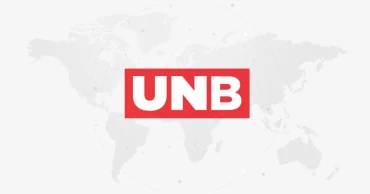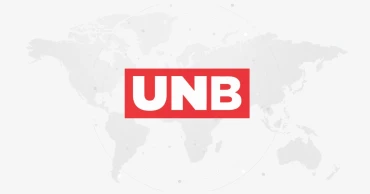Civil society organisations
CSOs demand VAT cancellation as a poverty reduction strategy
Leaders of Civil Society Organisations (CSOs) on Wednesday demanded the necessity to abolish the regressive tax system to eliminate the severe income inequality that has been created among the people in different countries of the world, including Bangladesh.
The demand was from a rally organised by twelve civil society organisations led by Equity and Justice Working Group (EquityBD) in front of the National Press Club in the capital in solidarity with the global civil society network Fight Inequality Alliance on the eve of the 54th Conference of the World Economic Forum with the slogan "Tax the rich, not the poor".
Bangladesh Krishok Federation, Bangladesh Climate Journalists sorum, CPRD, Sundarbans and Coast Protection Movement, Online Knowledge Society, ASOD, Water Keeper Bangladesh, Trinamool Development Organization, CSRL, JSKS and Coast Foundation participated in the rally.
E-commerce business must be sustained to build Smart Bangladesh: DNCRP DG
Mostafa Kamal Akand, Director of Coast Foundation, moderated the programme, while ASM Badrul Alam of Bangladesh Farmers Federation presided over the meeting.
Several recommendations were placed in the rally, including a balanced and fair tax system should be established through legislation and enforcement to prevent tax evasion.
Other recommendations included that research,investigation and other effective measures should be taken to prevent capital flight and profit repatriation. Besides, the tax burden on the poor and underprivileged should be eased by gradually reducing all types of indirect taxes, including VAT.
Motahar Hossain, on behalf of the Bangladesh Climate Journalist Forum, said that through indirect tax, basically, one person is forced to pay the tax of the other. Common consumers typically pay taxes levied on a company. This increases the cost of living for poor people.
On the other hand, the company that is making income is exempted from tax. This system needs to be changed, he added.
Shoeb Chy made Chairman of FBCCI standing committee on press, media
Syed Aminul Hoque, Secretary of EquityBD, said that the ongoing conference of the World Economic Forum (WEF), in fact, works for the multinational profiteering companies engaged in tax dodging and money laundering from poor countries.
"In this context, we need a global tax network under the UN framework where poor countries can protect themselves against tax dodging, and thus, money laundering will also be stopped. We expect our Prime Minister to convey this message while participating in the 54th Annual Conference of WEF," he said.
Imran Hossain of the CPRD said that tax evasion has become a normal practice in Bangladesh.
"We have laws and penalties for this, but they are not enforced. Emphasis should be placed on income tax and wealth tax collection to reduce indirect taxes," he said.
Nikhil Chandra Bhadra of the Sundarbans and Coast Protection Movement said that the people of Bangladesh fought the liberation war to abolish a discriminatory social system. But now, the disparity between the rich and the poor is the highest ever in the country’s history. This disparity can be reduced through an accountable and well-governed tax system.
Pradip Kumar Roy of Online Knowledge Society said that Bangladesh has often been praised for standing up for poor people and less developed countries at international conferences.
Cautionary monetary policy likely to stabilise forex reserve, contain Inflation: DCCI President
"We want Bangladesh to become the voice against discrimination and poverty alleviation in the upcoming conference of the World Economic Forum," he said.
In the closing speech, ASM Badrul Alam of the Bangladesh Krishok Federation said that all indirect taxes, including VAT, should be gradually reduced to ease the tax burden on the poor, and emphasis should be placed on bringing all industrialists and corporations under direct tax to increase the government's revenue.
2 years ago
Implement flood rehabilitation programmes through local organisations: CSOs
Civil society organisations (CSOs) Monday demanded that post-flood rehabilitation programmes, especially in the haor regions, be implemented through local organisations.
"In any disaster, the local people and organisations are the first to stand beside the people hit by any disaster. So, the capacity of local organisations should be increased; the post-flood rehabilitation activities in the haor regions must be implemented by them," they said at an online press conference organised by BDCSO process, a network of about 700 national and local CSOs and NGOs.
Abdul Karim Kim, general secretary of BDCSO Sylhet division, presided over the press conference moderated by Rezaul Karim Chowdhury, national coordinator of BDCSO Process.
BDCSO Sylhet Division President Tofazzal Sohel said several organisations, including the United Nations, had surveyed the impact of the recent floods. "In addition to assessing the damage, they also verified the need for post-flood rehabilitation."
Also Read: Flood in Bangladesh: Death toll stands at 107
"It is really good if international organisations stand beside the people along with the government. But we are, as always, inspired by the role of local people and local organisations during floods. Recognising this role, we believe, the UN agencies and INGOs should fund the implementation of post-flood rehabilitation programmes through local organisations as they understand the needs of local people best, and they can be more effective in implementing the programmes."
Rezaul said the role of international organisations is important, but they should limit their activities to fundraising, technical assistance and monitoring. "Field-level activities should be implemented by local organisations and the whole process should be coordinated by the government."
AWARD Executive Director Abul Kalam Azad, ADAB Sylhet Division Coordinator Babul Akhter, ADAB Sylhet District President ATM Badrul Islam, Shahjalal University of Science and Technology Professor Zahirul Haque Shakil, and Disaster expert and writer Gowhar Naeem Wara also spoke.
Azad said: "We have been working with the local people for a long time. So, if any programme is implemented through us, it is more likely to be sustainable."
Zahirul said: "I saw a person spending Tk40,000 to get relief of Tk10,000 taka. He could get assistance of Tk50,000, had the relief been distributed through a local organisation."
Wara said it is now very important to determine what is needed for local rehabilitation. "This demand needs to be verified by the local agencies working in the field."
3 years ago
Commit 2% of GDP to climate finance each year: civil society organisations
Civil Society Organisation leaders on Sunday demanded at least 2% of GDP [Gross Domestic Product] be diverted towards climate financing through the national budget every year.
They also urged the government to include coastal infrastructure issues as a prioritized investment sector to achieve a sustainable and climate resilient economy.
The demands were made at a seminar jointly organized by COAST Foundation, CPRD [Center for Participatory Research & Development] and CDP [Coastal Development Partnership] at CIRDAP auditorium in the capital on Sunday.
Dhirendra Debnath Shambhu, MP, and the Chair of Parliamentary Standing Committee on Fisheries and Livestock ministry attended the seminar as the Chief Guest, while the keynote paper was presented by Syed Aminul Hoque, Director of COAST Foundation.
Moderated by Rezaul Karim Chowdhury, Executive Director of COAST, the seminar was also addressed by Sharif Jamil, General Secretary of BAPA, AHM Bazlur Rahaman, CEO of BNNRC, Md. Shamsuddoha, CEO of CPRD, Prodip Kumar Roy of CSRL, and Dr. Mesbah Uddin Ahmed of Jatiya Sramik Federation.
Read: Experts for commission to monitor budget expenditure
In his keynote paper, Aminul Hoque said that the government’s commitment to fight climate change has hardly been reflected in its declared national budget 22-23 fiscal year. The amount allocated Tk 30,531 crores as climate budget is very traditional and business as usual which is unable to fulfill the demand, he added.
He mentioned that the government has prepared Delta plan-2100, NDC 2030 [National Determined Contribution 2030], BCCSAP-2009 and recently drafted NAP [National Adaption Plan] that require around 2.20% of GDP to implement, but current allocation is only 0.69%.
He put a few demands regarding climate financing issues included that the government must ensure at least 2% of GDP as climate financing according to their strategic plans and real time implement, to Include coastal infrastructure issues as one of the prioritized investment sectors and separate allocation for embankment construction.
In his speech, Dhirendra Debnath Shambhu, MP, opined that climate financing is important and needs to increase for holistic and balanced development in socio-economic perspectives.
He demanded a separate ministry or board at least for coastal development issues.
Sharif Jamil said we don’t expect the growth of a few capitalists and thus achieving socio-economic sustainability hardly be possible ignoring the environmental issues. Government will have to think universal sustainability that would come from a balance planning of both economic, environment and climate change issues, he added.
Bazlur Rahaman said, there have different problems and climatic challenges among the East coast, south-west and mid-coastal areas and planning should be developed accordingly.
He demanded special health care for vulnerable coastal women acute suffering with reproductive health.
3 years ago
Water diplomacy can help bolster regional cooperation: Webinar
Civil society organisations (CSOs) can play a critical role in broadening the meaning of water through the inclusion of cultural, gender, ecological, and psychological aspects, says an international relations expert.
5 years ago






